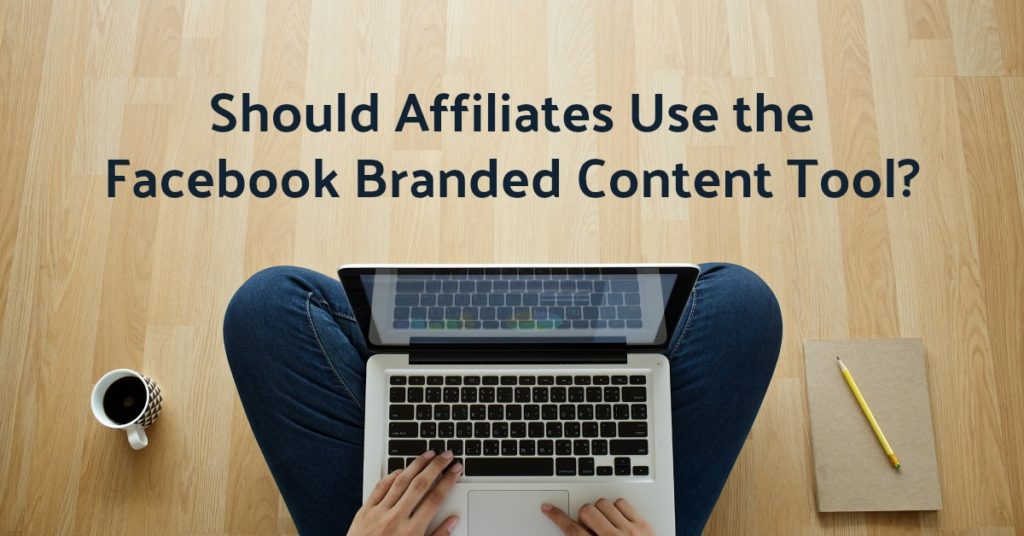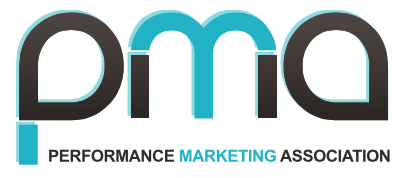
Should Affiliates Use the Facebook Branded Content Tool?

As part of our continuing efforts to help educate the industry on disclosure requirements, the Compliance Council has been researching the issue of whether and to what extent affiliates need to use the Facebook Branded Content Tool (also known as the Handshake Tool). Toward that end, we have not only surveyed affiliates about their use but have spoken directly with Facebook about their requirements. What follows is a summation of those along with outstanding issues we have with the policy.
Facebook Says Affiliates Must Use the Branded Content Tool
Members of the PMA Compliance Council first spoke with employees at Facebook back in April of 2018. Since that time, we have received more clarification from them via email.
First, they point affiliates to the following policies that regulate both Facebook and Instagram:
https://www.facebook.com/policies/brandedcontent/
Facebook defines “branded content” as “a creator or publisher’s content that features or is influenced by a business partner for an exchange of value.” In our conversation with them, they stated that the policy is meant to cover broad range promotional content from influencer marketing through to and including affiliate marketing.
Second, Facebook made it clear to us both verbally and in the email exchanges that branded content includes both:
- An affiliate who posts a direct affiliate link on Facebook, and
- An affiliate who posts a link to a blog post on Facebook where that blog post contains affiliate links.
Furthermore, the use of FTC compliant disclosure language (such as #ad) does not obviate the need to use the tool.
Survey of Affiliates
The Compliance Council conducted an informal, anonymous survey of affiliates who post links on Facebook. The links would include direct affiliate links or to blog posts that include affiliate links.
We first asked the affiliates whether they use proper FTC disclosure language in their Facebook posts and 72% responded either “Always” or “Sometimes.” Only 10% responded that they do not know what the rules are.
We next asked the affiliates whether they use the Facebook Branded Content tool when they post those links. Only 33% responded “Always” or “Sometimes.” In fact, almost 25% claimed to have no knowledge of the Facebook Branded Content Tool.
Arguments Against Using the Branded Content Tool
Because only 17% of the affiliates knew about FTC disclosure and chose not to use it, but 42% of affiliates knew about the Branded Content Tool and chose not to use it, we started talking to PMA members about why that is the case. Overwhelmingly the top reasons were:
- Tagging the merchant in the post would send customers directly to the merchant, thereby eliminating the possibility for affiliates to earn a commission.
- The social media team that approves the Branded Content submissions is often not the same as the affiliate team that manages the affiliate program and there is no easy way to police the use of the tags.
It’s too difficult to tag multiple merchants for a blog post that contains multiple merchant recommendations in the same post.
Conclusion
Are those arguments enough for affiliates to rationalize that they do not need to use the Branded Content Tool? As long as Facebook’s policy remains as it is, affiliates ARE obligated to use the Branded Content Tool. To do otherwise would subject the affiliate to having its Facebook account banned. However, it is our hope that further communication between our industry and Facebook can occur so that a mutually satisfactory result can be reached where affiliates are transparent about their relationships but not overburdened to the point of refusing to become compliant.

 Follow
Follow
Christen Evans
July 9, 2019 at 10:02 amThis is bonkers. Facebook is wayyy off base with their expectations here.
Anne Parris
July 9, 2019 at 11:18 amIt’s rare that the social media manager for a brand’s Facebook page has any awareness of the affiliate program and who’s in it. Big brands can have thousands of affiliates in programs managed by an agency. How are they to discern between an affiliate linking to the page and a random person? This is a huge unnecessary burden on affiliates, programs, and the merchants’ social managers, and with little to nothing added to the regular Facebook users’ experience.
Christen Evans
July 9, 2019 at 11:30 amNow that I’ve had a moment to calm down, here are my main thoughts (some of which were touched on in the post):
– Affiliates often mention multiple brands in a post, yet the Branded Content Tool only allows for one brand to be represented
– Affiliates still have to use #ad, AD or some form of natural language disclosure because the FTC very clearly stated that social media platforms’ built-in tool is not enough
– The teams running the Branded Content Tools may not always approve an affiliate’s post despite them being in the affiliate program
– Using the Branded Content Tool basically overrides the affiliate’s link by taking the user to the brand’s page rather than through their own tracked link
All of this is problematic and adds to a poor UX for both affiliates who want to promote their own content and for the end customer.
Jessica @ The Budget Savvy Bride
July 9, 2019 at 11:55 amI’m just sitting here trying to figure out which brand I’m supposed to tag with the branded content tool for a blog post where I round up affiliate products from a dozen different merchants…?
As a publisher, we often create content that features numerous brands, some of which we may have affiliate relationships with. Requiring use of the branded content tool for any page of a website with an affiliate link would mean we would essentially be required to use the branded content tool for nearly every page or post on our websites. Because the branded content tool overrides our links with that of the brand, this means our followers aren’t being taken to the content we have created for them, but rather the brand’s page instead. How exactly is this a good user experience?
This stance basically renders Facebook completely useless as a tool for promoting content that is monetized in any way and just does further work to kill online publishing as a business model.
Maryellen Garasky
July 11, 2019 at 12:50 pm1) Brands’ social teams are not the same person who manages the affiliate program, so there is no insight into who is an affiliate and who is not. Some programs have 1,000’s of affiliates and managing this process would be a waste of resources.
2) Per the FTC, no social media platform’s tool for “disclosure” satisfies their requirement, so “ad” or “sponsored” or plain language disclosures are still required.
3) There’s no way currently to tag more than one brand/merchant.
4) Using the branded tool on Facebook to link out to their own blog is preposterous. The disclosure that satisfies the FTC still resides on the publisher’s site.
5) It encourages users to bypass the affiliate link altogether and navigate directly to the brand’s social page and out to the brand’s site from there.
While some might not be bothered by #5 above, this is problematic. It results in a negative affiliate experience as they become discouraged due to the lack of commissions. This will result in them moving their marketing efforts and their audience (who join groups and follow their pages because they trust the publisher and the content they build) away from Facebook.
Joe Sousa
July 11, 2019 at 12:51 pmI see a number of issues with these guidelines from Facebook:
1. In nearly every case the affiliate and performance marketing teams. If an affiliate tags the merchant the affiliate managers will really never have to option of approving or denying. That will fall on the social team who will have no idea who these people are and why they are being tagged.
2. If an affiliate is linking back to their blog post that contains affiliate links I see no reason to use the branded content tool. Many major media outlets are starting to monetize their sites with affiliate links. Will sites like the Chicago Tribune or Buzzfeed have to use the branded content tool when they link to their content? Is the branded content tool relevant for any article that has any sort of affiliate link on it or just posts with commercial intent? If so who defines “commercial intent”?
3. If an affiliate puts together a gift guide or a roundup type post with links to multiple merchants who do they need to tag? Many affiliate posts will contain links to a number of different merchants so tagging one on FB makes no sense.
I understand the need for the branded content tool in some instances but having it apply to any use of an affiliate link, whether a direct link or a link to a blog post containing affiliate links, is ludicrous and unrealistic on Facebook’s part.
Pingback: Affiliate Marketing Industry News Roundup 6-26-2019
July 16, 2019 at 2:40 pmMindy Marzec
July 16, 2019 at 4:22 pmThis is a huge overreach from Facebook, who is going to ultimately drive publishers away from their platform and go elsewhere (Twitter doesn’t have these complicated requirements for monetized content, ahem).
Practically EVERY blog article I write had an affiliate link or two. So every time I share a blog link it needs to be marked as branded content on Facebook? That’s impractical. Let alone the conundrum of which brand I would tag when multiple affiliate links are present.
Facebook says they want to support creators, but then they make it impossible for us to earn money on their platform.